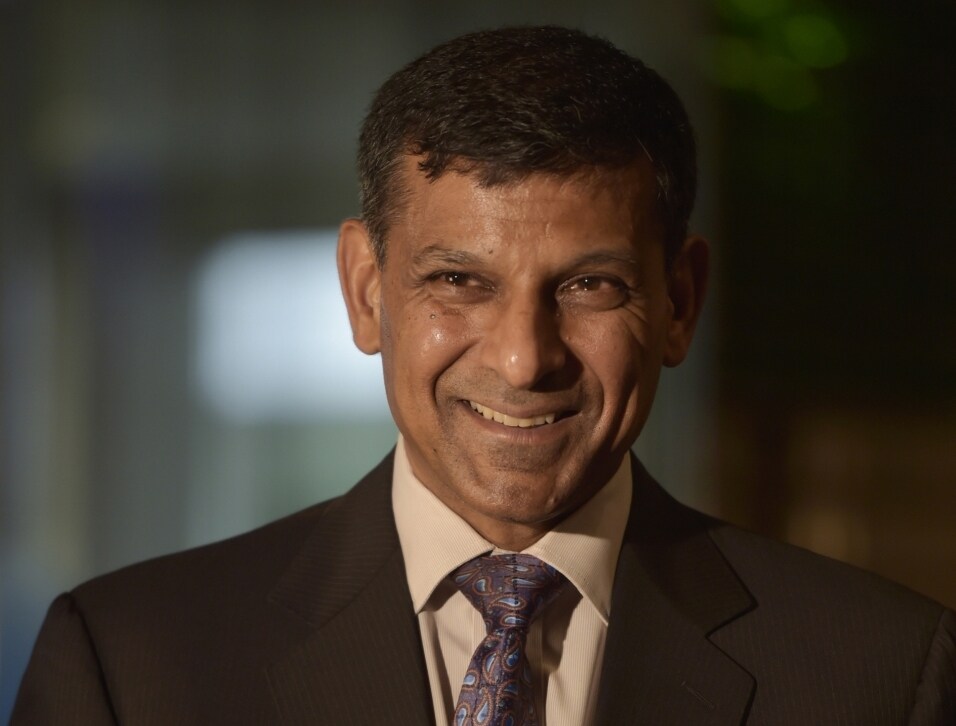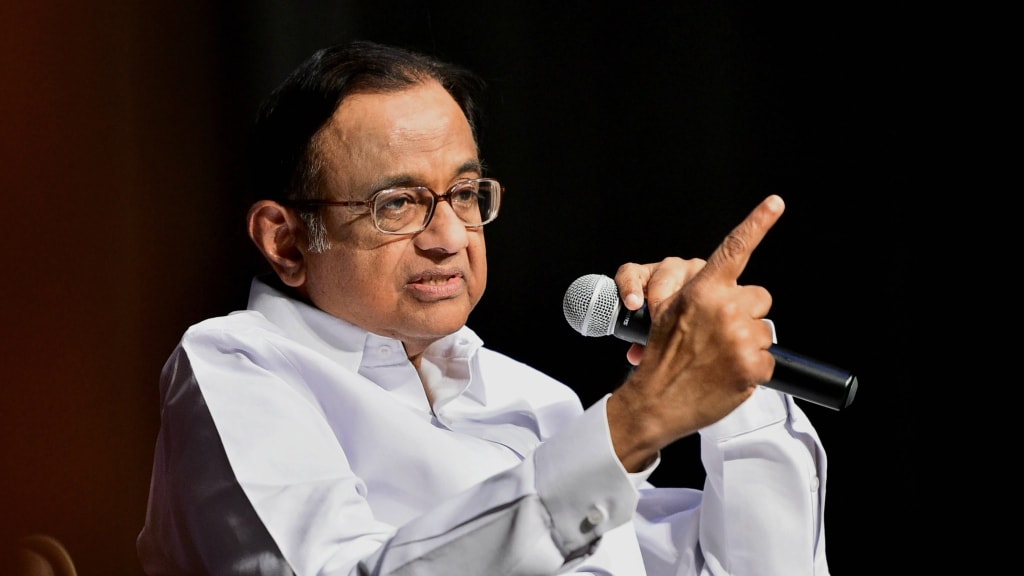As the debate over Congress’Minimum Income Guarantee scheme or NYAY rages on, Former RBI Governor Raghuram Rajan believes that ‘cash transfer schemes must empower people in the long-term’

India Inc must be made a stakeholder in minimum wage guarantee

KV Prasad Jun 13, 2022, 06:35 AM IST (Published)
 Listen to the Article (6 Minutes)
Listen to the Article (6 Minutes)
Summary
The idea of minimum wage must be well thought out and done in an incremental manner. It is important that industrialists be made stakeholders in this exercise and their views taken into account. In principle, there is nothing wrong with the concept, a lot however, will depend upon its implementation and building consensus.
While addressing a Kisan Abhaar Sammelan in January 2019, Congress President Rahul Gandhi made a commitment that if his party is voted to power, his government would implement the minimum wage guarantee for every poor person. The Centre had also introduced a Minimum Wages Bill in Parliament in August 2017.
Lead taken by Delhi government
New Delhi government took a lead on minimum wage. According to slabs prepared by the Delhi government’s Labour Department, an unskilled worker would be entitled to Rs 14,842 per month, a semi-skilled worker would get Rs 16,341 per month and a skilled worker Rs 17,991 per month. Their wages are currently at Rs 9,724 (unskilled), Rs 10,764 (semi-skilled) and Rs 11,830 (skilled) per month.
In 2016, Delhi government prepared a bill and sent to the Centre. In August 2017, the Delhi government’s recommendations were accepted, however, the Delhi High Court turned down this proposal saying it went against Article 14 of the Constitution, as well as Section 3 & Section 5(2) of the Minimum Wages Act, 1948. The Supreme Court later reversed this decision.
Relevance of Minimum Wages
No one can argue on the income disparity in India, and the improvements needed in the condition of India’s labour force. If not implemented in a proper manner, the case of Minimum Wages would be no different.
Possible Disruptions?
According to The Mint, a 10 percent rise in minimum wage is accompanied by a 5 percent drop in recruitment in low wage hiring firms. In Karnataka, the Minimum Wage has been increased by 80 percent (it has been estimated that over 20,000 jobs could be lost because of this). A number of apparel factories have already shifted from New Delhi to other NCR locations (Noida, Gurgaon) as a consequence of the Delhi government’s decision. The BPO sector too would suffer in Delhi. Unemployment is a major problem pan India and Delhi is no exception, thus it is important to think twice before raising the minimum wage all of a sudden so drastically.
Also, consumers could suffer if minimum wages are raised drastically. The impact of the minimum wage could, for instance, have a major impact on sectors such as healthcare. It would be pertinent to mention that in August 2018, private hospitals and nursing homes had opposed, in Delhi High Court, the Delhi government’s recommendation of raising the minimum wage of nurses to Rs 20,000 per month. They had argued this would make their business unviable.
Conclusion
The idea of minimum wage must be well thought out and done in an incremental manner. It is important that industrialists be made stakeholders in this exercise and their views are taken into account. In principle, there is nothing wrong with the concept, a lot, however, will depend upon its implementation and building consensus.
Tridivesh Singh Maini is policy analyst at The Jindal School of International Affairs, OP Jindal Global University in Sonipat.

Elon Musk forms several ‘X Holdings’ companies to fund potential Twitter buyout
3 Mins Read
Thursday’s filing dispelled some doubts, though Musk still has work to do. He and his advisers will spend the coming days vetting potential investors for the equity portion of his offer, according to people familiar with the matter
 Daily Newsletter
Daily Newsletter


KV Prasad Journo follow politics, process in Parliament and US Congress. Former Congressional APSA-Fulbright Fellow

LIVE TV
Shows
View AllMost Reads
View Alltoday's market
| index | Price | Change |
|---|---|---|
| nifty 50 | ₹16,986.00 | -72.15 |
| sensex | ₹1,882.60 | +28.30 |
| nifty IT | ₹2,206.80 | +30.85 |
| nifty bank | ₹1,318.95 | -14.95 |
| index | Price | Change |
|---|---|---|
| nifty 50 | ₹16,986.00 | -7.15 |
| sensex | ₹1,882.60 | +8.30 |
| nifty IT | ₹2,206.80 | +3.85 |
| nifty bank | ₹1,318.95 | -1.95 |
| index | Price | Change |
|---|---|---|
| nifty 50 | ₹16,986.00 | -72.15 |
| sensex | ₹1,882.60 | +28.30 |
| nifty IT | ₹2,206.80 | +30.85 |
| nifty bank | ₹1,318.95 | -14.95 |
| index | Price | Change |
|---|---|---|
| nifty 50 | ₹16,986.00 | -7.15 |
| sensex | ₹1,882.60 | +8.30 |
| nifty IT | ₹2,206.80 | +3.85 |
| nifty bank | ₹1,318.95 | -1.95 |
| index | Price | Change |
|---|---|---|
| nifty 50 | ₹16,986.00 | -7.15 |
| sensex | ₹1,882.60 | +8.30 |
| nifty IT | ₹2,206.80 | +3.85 |
| nifty bank | ₹1,318.95 | -1.95 |
Currency
| Company | Price | Chng | %Chng |
|---|---|---|---|
| Dollar-Rupee | 73.3500 | 0.0000 | 0.00 |
| Euro-Rupee | 89.0980 | 0.0100 | 0.01 |
| Pound-Rupee | 103.6360 | -0.0750 | -0.07 |
| Rupee-100 Yen | 0.6734 | -0.0003 | -0.05 |
Question 1 of 5
What coins do you think will be valuable over next 3 years?
Answer Anonymously
Should Elon Musk be able to buy Twitter?


Economists Angus Deaton & Thomas Piketty behind Rahul Gandhi’s minimum income promise: Report

KV Prasad Jun 13, 2022, 06:35 AM IST (Published)
 Listen to the Article (6 Minutes)
Listen to the Article (6 Minutes)
Summary
Nobel Prize winning British economist Angus Deaton and French economist Thomas Piketty are the brains behind Rahul Gandhi’s minimum income promise.
Nobel Prize winning British economist Angus Deaton and French economist Thomas Piketty are the brains behind Congress president Rahul Gandhi’s minimum income promise, reported The Print.
Congress leaders claimed that the advice from the duo are behind party’s ambitious poll promise of minimum income guarantee (MIG) to the poor, report said.
“It’s born out of sound economic thinking. A lot of research, consultations and data analysis has gone into the MIG promise… In fact, the idea of MIG first took shape at a dinner hosted by Praveen Chakravarty (chairperson of the Congress’ Data Analytics Department) in his Mumbai home for P. Chidambaram in December. There have been a lot of deliberations with well-known economists around the world after that,” a senior party functionary was quoted as saying in the report while adding that veteran leader Manmohan Singh is also in support of the idea.
According to the report, party sources said Congress reached out to Deaton and Piketty as Gandhi had studied their works. Capital in the Twenty-First Century, Piketty’s much-acclaimed book, dealt with how inequality grew since the industrial revolution and wealth got concentrated in a few rich families. Even The Economist called Piketty “The modern Marx”.
Deaton has also done extensive work on income inequality, poverty and health, especially in the Indian context, and has co-authored many works with Amartya Sen, another Nobel Laureate, and Jean Dreze, a former member of Sonia Gandhi-led National Advisory Council during the UPA regime.

Elon Musk forms several ‘X Holdings’ companies to fund potential Twitter buyout
3 Mins Read
Thursday’s filing dispelled some doubts, though Musk still has work to do. He and his advisers will spend the coming days vetting potential investors for the equity portion of his offer, according to people familiar with the matter
 Daily Newsletter
Daily Newsletter


KV Prasad Journo follow politics, process in Parliament and US Congress. Former Congressional APSA-Fulbright Fellow

LIVE TV
Shows
View AllMost Reads
View Alltoday's market
| index | Price | Change |
|---|---|---|
| nifty 50 | ₹16,986.00 | -72.15 |
| sensex | ₹1,882.60 | +28.30 |
| nifty IT | ₹2,206.80 | +30.85 |
| nifty bank | ₹1,318.95 | -14.95 |
| index | Price | Change |
|---|---|---|
| nifty 50 | ₹16,986.00 | -7.15 |
| sensex | ₹1,882.60 | +8.30 |
| nifty IT | ₹2,206.80 | +3.85 |
| nifty bank | ₹1,318.95 | -1.95 |
| index | Price | Change |
|---|---|---|
| nifty 50 | ₹16,986.00 | -72.15 |
| sensex | ₹1,882.60 | +28.30 |
| nifty IT | ₹2,206.80 | +30.85 |
| nifty bank | ₹1,318.95 | -14.95 |
| index | Price | Change |
|---|---|---|
| nifty 50 | ₹16,986.00 | -7.15 |
| sensex | ₹1,882.60 | +8.30 |
| nifty IT | ₹2,206.80 | +3.85 |
| nifty bank | ₹1,318.95 | -1.95 |
| index | Price | Change |
|---|---|---|
| nifty 50 | ₹16,986.00 | -7.15 |
| sensex | ₹1,882.60 | +8.30 |
| nifty IT | ₹2,206.80 | +3.85 |
| nifty bank | ₹1,318.95 | -1.95 |
Currency
| Company | Price | Chng | %Chng |
|---|---|---|---|
| Dollar-Rupee | 73.3500 | 0.0000 | 0.00 |
| Euro-Rupee | 89.0980 | 0.0100 | 0.01 |
| Pound-Rupee | 103.6360 | -0.0750 | -0.07 |
| Rupee-100 Yen | 0.6734 | -0.0003 | -0.05 |
Question 1 of 5
What coins do you think will be valuable over next 3 years?
Answer Anonymously
Should Elon Musk be able to buy Twitter?

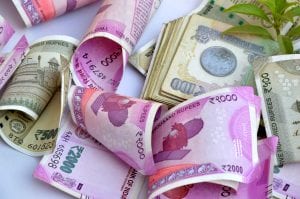
Why Universal Basic Income may not be a good idea for India

KV Prasad Jun 13, 2022, 06:35 AM IST (Published)
 Listen to the Article (6 Minutes)
Listen to the Article (6 Minutes)
Summary
The UBI is one of the most debated topics, not only in India but across the globe. Some developed countries, including the Scandinavian countries, are running pilots and may eventually make it a social welfare norm for the entire country.
Ahead of the General Elections 2019, Congress is batting for the implementation of the minimum guarantee scheme, theoretically known as the Universal Basic Income (UBI) scheme.
The UBI — the unconditional cash transfer system — requires the economy to be financially strong to fund the programme, making it the key reason for developed countries to have an upper hand in implementing the scheme.
The UBI is one of the most debated topics, not only in India but across the globe. Some developed countries, including the Scandinavian countries, are running pilots and may eventually make it a social welfare norm.
For developed countries, the scheme is simply to fix the hurdles which are blocking the economy to achieve optimal growth. But when it comes to implementing UBI in a developing country, like India, it’s a different ballgame altogether.
According to Jayati Ghosh, an Economics Professor at Jawaharlal Nehru University, there are three key problems in implementing UBI in developing countries.
Firstly, “the policies in developing countries are weak,” according to Ghosh. She explained how developing countries have to strengthen their fiscal policies and make it more people-friendly so that when the scheme is implemented, people are able to bear the fruits.
Secondly, in most developing countries, the “reach of the government is not much.” Here, she explains that, because of the vast population and the existing social class divide, it will be difficult for the government to cater to the needs of the people efficiently.
Lastly, the lack of funds. The Economic Survey, an annual report on the state of India’s economy, shows that there are only 7 taxpayers for every 100 voters in the country.
The lack of funds is one of the major hindrances coming in the way of a developing country like India to implement UBI. This is one of the main reasons why the government has said that if the UBI is implemented in India, the existing social welfare schemes will be done away with.

Elon Musk forms several ‘X Holdings’ companies to fund potential Twitter buyout
3 Mins Read
Thursday’s filing dispelled some doubts, though Musk still has work to do. He and his advisers will spend the coming days vetting potential investors for the equity portion of his offer, according to people familiar with the matter
 Daily Newsletter
Daily Newsletter


KV Prasad Journo follow politics, process in Parliament and US Congress. Former Congressional APSA-Fulbright Fellow

LIVE TV
Shows
View AllMost Reads
View Alltoday's market
| index | Price | Change |
|---|---|---|
| nifty 50 | ₹16,986.00 | -72.15 |
| sensex | ₹1,882.60 | +28.30 |
| nifty IT | ₹2,206.80 | +30.85 |
| nifty bank | ₹1,318.95 | -14.95 |
| index | Price | Change |
|---|---|---|
| nifty 50 | ₹16,986.00 | -7.15 |
| sensex | ₹1,882.60 | +8.30 |
| nifty IT | ₹2,206.80 | +3.85 |
| nifty bank | ₹1,318.95 | -1.95 |
| index | Price | Change |
|---|---|---|
| nifty 50 | ₹16,986.00 | -72.15 |
| sensex | ₹1,882.60 | +28.30 |
| nifty IT | ₹2,206.80 | +30.85 |
| nifty bank | ₹1,318.95 | -14.95 |
| index | Price | Change |
|---|---|---|
| nifty 50 | ₹16,986.00 | -7.15 |
| sensex | ₹1,882.60 | +8.30 |
| nifty IT | ₹2,206.80 | +3.85 |
| nifty bank | ₹1,318.95 | -1.95 |
| index | Price | Change |
|---|---|---|
| nifty 50 | ₹16,986.00 | -7.15 |
| sensex | ₹1,882.60 | +8.30 |
| nifty IT | ₹2,206.80 | +3.85 |
| nifty bank | ₹1,318.95 | -1.95 |
Currency
| Company | Price | Chng | %Chng |
|---|---|---|---|
| Dollar-Rupee | 73.3500 | 0.0000 | 0.00 |
| Euro-Rupee | 89.0980 | 0.0100 | 0.01 |
| Pound-Rupee | 103.6360 | -0.0750 | -0.07 |
| Rupee-100 Yen | 0.6734 | -0.0003 | -0.05 |
Question 1 of 5
What coins do you think will be valuable over next 3 years?
Answer Anonymously
Should Elon Musk be able to buy Twitter?


Minimum Income Guarantee: An idea that is the need of the hour

KV Prasad Jun 13, 2022, 06:35 AM IST (Published)
 Listen to the Article (6 Minutes)
Listen to the Article (6 Minutes)
Summary
The Universal Basic Income is a fixed cash transfer to every resident of the country.
The conversation around an income guarantee for the poor is not new. In the Economic Survey of India 2016-17, the then chief economic advisor to the Government of India, Arvind Subramaniam had made a case for Universal Basic Income, suggesting that it was a path that needed to be adopted sooner rather than later. The Universal Basic Income is a fixed cash transfer to every resident of the country. The Economic Survey declared that Universal Basic Income “could be to the twenty first century what civil and political rights were to the twentieth.” The price tag on a Universal Basic Income for a nation as populous as India would be back breaking.
There have been murmurs about the government veering towards some form of Universal Basic Income, ever since the BJP lost the state elections in the Hindi heartlands. And, the announcement by the Congress President Rahul Gandhi that “If voted to power in 2019, the Congress is committed to a Minimum Income Guarantee for every poor person, to help eradicate poverty & hunger” seems to be timed to pre-empt the eventuality of the government’s announcement. As a political move, it is one that will catch the attention of large chunks of the population. But, the billion dollar question remains, can India afford it? What Mr Gandhi has suggested is not so much a Universal Basic Income, as much as a targeted cash transfer to the poorest among Indians.
As per the Tendulkar committee (2009) report the percentage of extremely poor in India stands at 22 percent or 286 million people. Roughly one in five Indians lives in extreme poverty. The Rangarajan committee report (2014) estimates that 30.9 percent of the rural population, and 26.4 percent of the urban population is extremely poor. Even And, that is defined as a Monthly Per Capita Expenditure of Rs 1,407 in urban areas and Rs 972 in rural areas. In other words, the extreme poverty levels are defined as those people living on less than Rs 47 per day in urban areas, and less than Rs.32 per day in rural India. For a family of five, this translates into a monthly consumption expenditure of Rs 4,860 in rural areas and Rs 7,035 in urban areas. If we look at more recent figures, put up by the World Poverty Clock, where India has been immensely successful in lifting people out of poverty, the extreme poverty figure is estimated at 3.6 percent of India’s population, close to 50 million people. And, between the Tendulkar committee report estimates and the World Poverty clock estimates is the population Mr Gandhi would want to address with his Minimum Income Guarantee scheme.
The question remains, can India afford it? And, the answer is simpler than it sounds – can India afford not to have income support for those who live on less than Rs 47 per day? In an earlier column on the Universal Basic Income, I had suggested that given the number of shrinking job opportunities for unskilled or semi-skilled labour, UBI would need to be considered sooner rather than later, as a means of staving off not just extreme poverty, but social unrest due to poverty.
What would be interesting to see is if the Minimum Income Guarantee programme subsumes all other poverty alleviation programmes or not. According to the Economic Survey of India, the central government already runs almost 950 central schemes that accounts for 5 percent of the GDP. Would the Minimum Income Guarantee scheme be in addition to these schemes, or instead of these schemes? Where would the extra money come from to run this programme, and not fall foul of the deficit to GDP ratio that India tries to adhere to?
One option is to increase direct taxes. And, there isn’t much space to do that. We are already a heavily taxed nation, and the tax base is too small to make a substantial dent on the money required to fund such a scheme. The other is to rationalise GST, and remove most of the items – bar those required for sustenance from the 0 percent bracket, and tax them at a nominal amount – like 3 percent. Also, the boost to the economy of between 50 million and 200 million being able to spend on basics, will bump up GDP, growth and incomes lifting incomes all around or that is the theory.
But how will a future Government of India define poverty? Which figures will it use – the accepted Tendulkar committee figures, the more recent Rangarajan committee report figures, World Bank figures, or something else? Recently, the NDA government when it introduced the 10 percent reservation for economically weaker sections, defined economic weakness as a family income below Rs 8 lakhs per annum. While they may not be defined as living in abject poverty, this gives you a ball park figure below which different groups will agitate for income support.
Be it the BJP or the Congress, the time for income support is here. The thought is out of the genie’s bottle, and it will be acted on – sooner rather than later. If India wants to be a super power, it cannot do so with millions of fellow citizens living in abject poverty. The time for a social security net, that includes income transfer is here. The question is how can it be best implemented.
Harini Calamur writes on politics, gender and her areas of interest are the intersection of technology, media, and audiences.

Elon Musk forms several ‘X Holdings’ companies to fund potential Twitter buyout
3 Mins Read
Thursday’s filing dispelled some doubts, though Musk still has work to do. He and his advisers will spend the coming days vetting potential investors for the equity portion of his offer, according to people familiar with the matter
 Daily Newsletter
Daily Newsletter


KV Prasad Journo follow politics, process in Parliament and US Congress. Former Congressional APSA-Fulbright Fellow

LIVE TV
Shows
View AllMost Reads
View Alltoday's market
| index | Price | Change |
|---|---|---|
| nifty 50 | ₹16,986.00 | -72.15 |
| sensex | ₹1,882.60 | +28.30 |
| nifty IT | ₹2,206.80 | +30.85 |
| nifty bank | ₹1,318.95 | -14.95 |
| index | Price | Change |
|---|---|---|
| nifty 50 | ₹16,986.00 | -7.15 |
| sensex | ₹1,882.60 | +8.30 |
| nifty IT | ₹2,206.80 | +3.85 |
| nifty bank | ₹1,318.95 | -1.95 |
| index | Price | Change |
|---|---|---|
| nifty 50 | ₹16,986.00 | -72.15 |
| sensex | ₹1,882.60 | +28.30 |
| nifty IT | ₹2,206.80 | +30.85 |
| nifty bank | ₹1,318.95 | -14.95 |
| index | Price | Change |
|---|---|---|
| nifty 50 | ₹16,986.00 | -7.15 |
| sensex | ₹1,882.60 | +8.30 |
| nifty IT | ₹2,206.80 | +3.85 |
| nifty bank | ₹1,318.95 | -1.95 |
| index | Price | Change |
|---|---|---|
| nifty 50 | ₹16,986.00 | -7.15 |
| sensex | ₹1,882.60 | +8.30 |
| nifty IT | ₹2,206.80 | +3.85 |
| nifty bank | ₹1,318.95 | -1.95 |
Currency
| Company | Price | Chng | %Chng |
|---|---|---|---|
| Dollar-Rupee | 73.3500 | 0.0000 | 0.00 |
| Euro-Rupee | 89.0980 | 0.0100 | 0.01 |
| Pound-Rupee | 103.6360 | -0.0750 | -0.07 |
| Rupee-100 Yen | 0.6734 | -0.0003 | -0.05 |
Question 1 of 5
What coins do you think will be valuable over next 3 years?
Answer Anonymously
Should Elon Musk be able to buy Twitter?

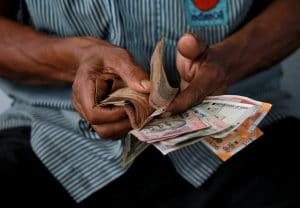
Universal Basic Income: Is it free money for everybody?

KV Prasad Jun 13, 2022, 06:35 AM IST (Published)
 Listen to the Article (6 Minutes)
Listen to the Article (6 Minutes)
Summary
Universal Basic Income (UBI) is one of the most-discussed economic concepts in the world. The idea of a UBI for the poor is gaining traction in wealthier countries such as Finland and France.
Congress president Rahul Gandhi on Monday made a huge electoral promise ahead of the general elections — a guaranteed minimum income for the poor across the country, much like the system of social security in the US.
But there have been questions on how the Congress proposes to fund it. Diverting funds from subsidy programmes would provide enough funds, Reuters reported quoting Congress leaders as saying.
Universal Basic Income (UBI) is one of the most-discussed economic concepts in the world. The idea of a UBI for the poor is gaining traction in wealthier countries such as Finland and France.
Let’s take a look at the benefits of UBI and how does it work.
What is Universal Basic Income?
It is basically a form of social security through which citizens of a country or a particular region receive an unconditional sum of money on a regular basis from the government, regardless of how much they earn from other sources.
How does it work?
The scheme functions on the concept of direct cash transfer, which puts more cash in the hands of citizens, thereby improving their everyday income. The idea is to have a direct transfer of funds instead of having indirect benefit schemes.
An economics professor at London School of Economics, Maitreesh Ghatak, explained that UBI has three primary features – cash transfer, unconditional and universal – which essentially means it is an unconditional cash transfer to which every citizen of the country is entitled.
What are these features?
Detailed below is Ghatak’s explanation of these three factors:
- Cash transfer: UBI is a cash transfer scheme, as opposed to any other scheme that involves payment in kind, i.e. through specific goods or services. The cash transfer is done in a subsidised manner, or through coupons or vouchers.
- Unconditional: UBI is non-conditional, meaning it is not contingent on the recipient satisfying any compliance criteria to receive the assistance. This also distinguishes the concept from pensions, and unemployment and disability benefits, in the context of developed countries.
- Universal: UBI is universal, which means it is not meant for a specific group of people chosen on the basis of socio-economic or demographic criteria. Targeted assistance, on the other hand, caters to those below a certain income level, (e.g., child support or pensions) as opposed to every citizen.
Where has it been tried out?
Kenya, Finland, USA and India are among the countries who have tested or are testing UBI in some capacity or other. However, all these pilots came with conditions, which is not how the scheme works in its purest form.
Both Kenya and India’s pilots are restricted to rural areas. India ran two pilots for 12-17 months between 2011 and 2012, both in Madhya Pradesh. The first one was aimed at transferring funds to eight villages, while the second one was aimed at cash transfer to the inhabitants of two tribal villages.
The Kenyan pilot, on the other hand, is still running and the people of around 200 villages in the country are its beneficiaries. The pilot is expected to continue running for another 12 years.
Was UBI successful in the US?
The United States has a more comprehensive pilot running in the state of Alaska. The Alaska Permanent Fund, a constitutionally established permanent fund, pays a sum called Permanent Fund Dividend to all Alaska residents who have lived in the state for a full calendar year. The amount varies from year to year and depends upon a wide range of factors, including the stock market.
The UBI pilot in Finland, which started last year, involves transferring funds to 2,000 unemployed citizens for a period of two years. The motive was to see if this results in an increase in employment levels.
The above-mentioned pilots belong to two different types of countries – developed and developing. In developing countries, UBI is mainly adopted to eradicate poverty, while in developed countries, the scheme is implemented to boost growth by filling up infrastructural gaps.
What does critics have to say?
Like with anything that is perceived to be populist, the scheme has also been widely criticised. Many believe that it will discourage people from working productively as money will be getting easily transferred to their accounts. They believe that the beneficiaries will resort to bad habits instead of being motivated to work.
Due to these arguments, many countries have considered running pilots to check if the scheme is working out for their economy.

Elon Musk forms several ‘X Holdings’ companies to fund potential Twitter buyout
3 Mins Read
Thursday’s filing dispelled some doubts, though Musk still has work to do. He and his advisers will spend the coming days vetting potential investors for the equity portion of his offer, according to people familiar with the matter
 Daily Newsletter
Daily Newsletter


KV Prasad Journo follow politics, process in Parliament and US Congress. Former Congressional APSA-Fulbright Fellow

LIVE TV
Shows
View AllMost Reads
View Alltoday's market
| index | Price | Change |
|---|---|---|
| nifty 50 | ₹16,986.00 | -72.15 |
| sensex | ₹1,882.60 | +28.30 |
| nifty IT | ₹2,206.80 | +30.85 |
| nifty bank | ₹1,318.95 | -14.95 |
| index | Price | Change |
|---|---|---|
| nifty 50 | ₹16,986.00 | -7.15 |
| sensex | ₹1,882.60 | +8.30 |
| nifty IT | ₹2,206.80 | +3.85 |
| nifty bank | ₹1,318.95 | -1.95 |
| index | Price | Change |
|---|---|---|
| nifty 50 | ₹16,986.00 | -72.15 |
| sensex | ₹1,882.60 | +28.30 |
| nifty IT | ₹2,206.80 | +30.85 |
| nifty bank | ₹1,318.95 | -14.95 |
| index | Price | Change |
|---|---|---|
| nifty 50 | ₹16,986.00 | -7.15 |
| sensex | ₹1,882.60 | +8.30 |
| nifty IT | ₹2,206.80 | +3.85 |
| nifty bank | ₹1,318.95 | -1.95 |
| index | Price | Change |
|---|---|---|
| nifty 50 | ₹16,986.00 | -7.15 |
| sensex | ₹1,882.60 | +8.30 |
| nifty IT | ₹2,206.80 | +3.85 |
| nifty bank | ₹1,318.95 | -1.95 |
Currency
| Company | Price | Chng | %Chng |
|---|---|---|---|
| Dollar-Rupee | 73.3500 | 0.0000 | 0.00 |
| Euro-Rupee | 89.0980 | 0.0100 | 0.01 |
| Pound-Rupee | 103.6360 | -0.0750 | -0.07 |
| Rupee-100 Yen | 0.6734 | -0.0003 | -0.05 |
Question 1 of 5
What coins do you think will be valuable over next 3 years?
Answer Anonymously
Should Elon Musk be able to buy Twitter?

P Chidambaram promises fiscal prudence even as Congress assures minimum income guarantee for poor families
After Congress president Rahul Gandhi announced that his party would ensure Universal Basic Income (UBI) in the country, senior Congress leader P Chidambaram on Monday promised fiscal prudence and assured a minimum income guarantee scheme for the poor families.
Chidambaram said the Congress government if comes to power in 2019 will work out the math to make minimum income guarantee workable and the idea was not borrowed from the BJP as the saffron part has practically nothing to teach Congress.
In an interview to CNBC-TV18’s Shereen Bhan, Chidambaram said, “Let’s assume that 20 percent of India are the very poor and we must find the way in which that 20 percent families are assured an annual income at a minimum level. At a level, where they will have enough food, clothes, roof over their head, can send their children to school and access healthcare, and that’s the absolute minimum in a civilised society.”
“Our employment is in the unorganised sector. Bulk of them are in rural India and a very large number is in urban slums. Therefore, the target is the poorest families. The mode is to transfer money to those families so that the family will have a minimum income,” he said.
Former finance minister said India will be adapting the idea of universal basic income to our situations and to our needs, “It will be through a transfer of money to families, the poorest families of India. The Minimum Wages Act will imply only to an employment in the organised sector. Developed countries do exactly what I am saying by periodically increasing the minimum wage. America does it, but that is because most employment there or almost 100 percent employment is in the organised sector.”
“Dr Arvind Subramanian for example has calculated a UBI to be 1.5 percent of GDP and others have made the calculation. I think the way we are approaching the problem, namely wiping out of poverty as the goal, it is eminently doable. We are a large economy and given the size of our GDP and annual expenditure, we can do it,” he added.
Chief economic advisor (CEA) Arvind Subramanian in the Economic Survey 2016-17 had mooted the idea of UBI or a uniform stipend paid to every adult and child, poor or rich. UBI will guarantee all citizens enough income to cover their basic needs and would be easier to administer than the current anti-poverty schemes, which are plagued by waste, corruption and abuse.
Claiming that fiscal deficit will remain around the level of three percent, Chidambaram said the United Progressive Alliance (UPA) government has progressively brought it down every year and the Congress is committed to FRBM (Fiscal Responsibility and Budget Management Act).
Talking on method of implementation, Chidambaram said the party will answer this question when it forms the government and added that bulk of obligation will be carried by the central government, but will find ways to see how it can be shared with state governments.
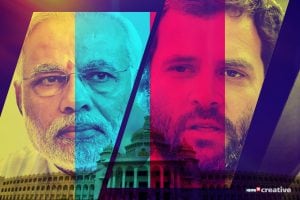
Rahul Gandhi bowls Modi government a googly, proposes minimum income guarantee ahead of budget, elections

KV Prasad Jun 13, 2022, 06:35 AM IST (Published)
 Listen to the Article (6 Minutes)
Listen to the Article (6 Minutes)
Summary
In a move that has surprised the Narendra Modi government, which is supposed to announce the Universal Basic Income (UBI) scheme in the upcoming 2019 interim budget, Congress president Rahul Gandhi on Monday said that his party will bring Minimum Income Guarantee for all the poor of the country if it formed the government at the centre. The announcement comes four days ahead of the interim budget to be presented by the Narendra Modi government before the Lok Sabha polls due before June this year.
In a move that has surprised the Narendra Modi government, which is supposed to announce the Universal Basic Income (UBI) scheme in the upcoming 2019 interim budget, Congress president Rahul Gandhi on Monday said that his party will bring Minimum Income Guarantee for all the poor of the country if it formed the government at the centre.
The announcement comes four days ahead of the interim budget to be presented by the Narendra Modi government before the Lok Sabha polls due before June this year.
It also follows the NDA government’s decision to give 10 per cent quota to the economically backward section in the general category and a likely announcement of a relief package for farmers grappling with falling prices of their crops and to tackle distress in the farm sector.
We cannot build a new India while millions of our brothers & sisters suffer the scourge of poverty.
If voted to power in 2019, the Congress is committed to a Minimum Income Guarantee for every poor person, to help eradicate poverty & hunger.
This is our vision & our promise.
— Rahul Gandhi (@RahulGandhi) January 28, 2019
“We have now taken a step that no government has taken before. We have decided to give every poor person a Minimum Income Guarantee when we form the government. This is a historic step taken to eradicate hunger and poverty,” said Rahul Gandhi while addressing a farmers’ rally in Chhattisgarh’s Raipur.
Speaking at the ‘Kisaan Abhaar Sammelan’ held in Raipur to express gratitude to Chhattisgarh’s people for voting Congress to power in the state after a gap of 15 years, he attacked Prime Minister Narendra Modi and BJP government for not waiving off the farmers loans.
Joining Gandhi, senior Congress leader P Chidambaram termed Minimum Income Guarantee as historic and a turning point in the lives of the poor.
Congress President Rahul Gandhi’s announcement at the farmers’ rally in Chhattisgarh is historic and will mark a turning point in the lives of the poor.
— P. Chidambaram (@PChidambaram_IN) January 28, 2019
The former finance minister said Congress will give a detailed plan on Universal Basic Income in the party manifesto, which would be ready by February-end.
The principle of Universal Basic Income (UBI) has been discussed extensively in the last two years. The time has come to adapt the principle to our situation and our needs and implement the same for the poor. We will explain our plan in the Congress Manifesto.
— P. Chidambaram (@PChidambaram_IN) January 28, 2019
Chidambaram said Congress will find the resources to implement the promise of Gandhi as 140 million people were lifted out of poverty between 2004 and 2014, when the party was in the power at the centre.
140 million people were lifted out of poverty between 2004 and 2014. Now we should make a determined effort to wipe out poverty in India.
— P. Chidambaram (@PChidambaram_IN) January 28, 2019
140 million people were lifted out of poverty between 2004 and 2014. Now we should make a determined effort to wipe out poverty in India.
— P. Chidambaram (@PChidambaram_IN) January 28, 2019
Chief economic advisor (CEA) Arvind Subramanian in the Economic Survey 2016-17 had mooted the idea of UBI or a uniform stipend paid to every adult and child, poor or rich.
UBI will guarantee all citizens enough income to cover their basic needs and would be easier to administer than the current anti-poverty schemes, which are plagued by waste, corruption and abuse.

Elon Musk forms several ‘X Holdings’ companies to fund potential Twitter buyout
3 Mins Read
Thursday’s filing dispelled some doubts, though Musk still has work to do. He and his advisers will spend the coming days vetting potential investors for the equity portion of his offer, according to people familiar with the matter
 Daily Newsletter
Daily Newsletter


KV Prasad Journo follow politics, process in Parliament and US Congress. Former Congressional APSA-Fulbright Fellow

LIVE TV
Shows
View AllMost Reads
View Alltoday's market
| index | Price | Change |
|---|---|---|
| nifty 50 | ₹16,986.00 | -72.15 |
| sensex | ₹1,882.60 | +28.30 |
| nifty IT | ₹2,206.80 | +30.85 |
| nifty bank | ₹1,318.95 | -14.95 |
| index | Price | Change |
|---|---|---|
| nifty 50 | ₹16,986.00 | -7.15 |
| sensex | ₹1,882.60 | +8.30 |
| nifty IT | ₹2,206.80 | +3.85 |
| nifty bank | ₹1,318.95 | -1.95 |
| index | Price | Change |
|---|---|---|
| nifty 50 | ₹16,986.00 | -72.15 |
| sensex | ₹1,882.60 | +28.30 |
| nifty IT | ₹2,206.80 | +30.85 |
| nifty bank | ₹1,318.95 | -14.95 |
| index | Price | Change |
|---|---|---|
| nifty 50 | ₹16,986.00 | -7.15 |
| sensex | ₹1,882.60 | +8.30 |
| nifty IT | ₹2,206.80 | +3.85 |
| nifty bank | ₹1,318.95 | -1.95 |
| index | Price | Change |
|---|---|---|
| nifty 50 | ₹16,986.00 | -7.15 |
| sensex | ₹1,882.60 | +8.30 |
| nifty IT | ₹2,206.80 | +3.85 |
| nifty bank | ₹1,318.95 | -1.95 |
Currency
| Company | Price | Chng | %Chng |
|---|---|---|---|
| Dollar-Rupee | 73.3500 | 0.0000 | 0.00 |
| Euro-Rupee | 89.0980 | 0.0100 | 0.01 |
| Pound-Rupee | 103.6360 | -0.0750 | -0.07 |
| Rupee-100 Yen | 0.6734 | -0.0003 | -0.05 |
Question 1 of 5
What coins do you think will be valuable over next 3 years?
Answer Anonymously
Should Elon Musk be able to buy Twitter?

